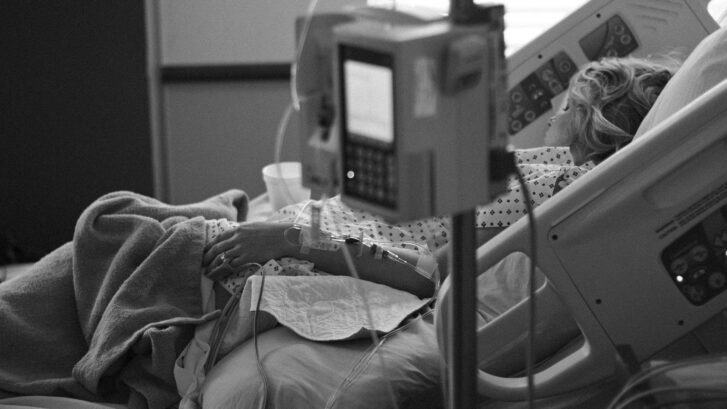Hospital-Acquired Delirium Catches Caregivers Off-Guard
The middle-of-the-night phone call from the man’s 91-year-old father was frightening.
“Call the police! They’re trying to kill me!”
“Who’s trying to kill you?”
“These people. They’re holding me captive, they’re starving me to death.”
Except “these people” were doctors and nurses, and the older man was in the hospital being tested for a possible stroke. He hadn’t had one, but during the brief two days he’d been in the hospital, he’d acquired a little-known condition called hospital-acquired delirium.
Our concierge doctors are aware of it, but few outside the medical community have heard of it unless it has happened to their loved one.
Wild delusions
The hallucinations may range from mild to outrageous.
They can imagine they’re fighting a war they were never in; they’ve been captured by spies and spirited out of the state or even the country; that their nurses and doctors are trying to kill them. These delusions are absolutely real (and terrifying) to them, and no amount of reasoning can argue them out of it, and often result in attempts to escape their “captors.”
At the other extreme, patients may become withdrawn and unresponsive. Other symptoms may include confusion, disorientation, altered states of consciousness, or an inability to focus. Or the patient may change personalities, from a normally easy-going personality to angry or combative, for example.
The main difference between hospital-acquired delirium and dementia is the time period of onset. Dementia slowly progresses over the course of months or years. Although up to 40 percent of those with dementia can also suffer from delirium, the latter syndrome occurs suddenly in patients who were otherwise perfectly lucid prior to entering the hospital. It can develop in a matter of hours or days following admittance.
A common occurrence
According to a report Harvard Health Publishing, hospital-acquired delirium is the most common complication of hospitalization among older people, although it can occur in patients of any age. It is most prevalent in those who undergo such major surgeries as hip replacements or heart surgeries, or who were admitted to an intensive care unit. In fact, the syndrome was originally called ICU delirium.
The prognosis for recovery is mixed. Most people return to normal within a week or two after returning home. One study, however, found people over age 65 admitted to a hospital and diagnosed with delirium were more likely to die within a year than those who hadn’t. And the episodes of delirium may continue for months after discharge in up to a third of patients.
Possible causes
There are many reasons why a patient might slip into hospital-acquired delirium. These include:
- Sleep deprivation—The constant noise, lights, interruptions, and general activity in a hospital setting can make a peaceful night’s sleep impossible. This naturally leads to a confused mental state.
- Undiagnosed infections—Many untreated infections can cause delirium. Urinary tract infections are the most common culprit in a hospital setting.
- Dehydration—It may sound too simple, but dehydration can lead to delirium.
- Drug reactions/interactions—Older adults often take multiple medications, and new ones may be introduced at the hospital, causing unforeseen reactions or interactions. This is especially true with certain categories of drugs (e.g., antihistamines, antidepressants) that can trigger side effects, including delirium. Conversely, the sudden withdrawal of medications can also cause such a reaction.
How to help
It’s important that hospital staff rule out physical causes for unusual behavior in a patient, such as treating infections or performing tests for a possible stroke, for example. Be sure they know that the use of physical restraints and sedatives are not recommended, because they can increase the patient’s agitation.
But there are ways you can help.
- Try to spend as much time as possible with your loved one. If pandemic restrictions prevent in-person visits, at least make sure they have such necessary items as glasses, hearing aids, and dentures. Bring family photos or other familiar items to help reorient them. Make sure they have their phone and charger available and call them as often as possible.
- Ask the staff to minimize sleep deprivation, waiting until morning to do blood pressure checks or give medication, for example. Also ask to lower and to keep noise to a minimum at night to allow for restful sleep.
- Encourage exercise. Even a brief walk down the hall two or three times a day will help.
- It’s important not to panic if your loved one becomes delirious following a stay in the hospital. If you tell them their hallucinations are not real, they likely won’t believe you. Remain calm, reassure them you are there to look out for them, and try to calmly redirect their thoughts into their surroundings.
Remember, once they are out of the hospital setting, they will most likely return to normal.

